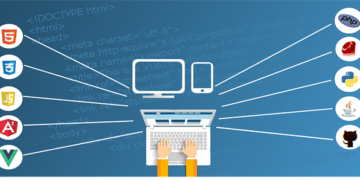The primary challenge in web scraping is not the denial of access to websites. Blocks usually occur in the form of specific errors or captchas.
Web scraping is an automated process, and some websites block the IP address from where the scraping activity starts. When you use proxies for web scraping, you reduce the chances of getting blocked.
Proxies can help you obtain precious industry-changing market data without getting blocked. Proxies allow access to information from different areas around the world. You may use proxies to deal with captchas and gather precious industry-changing market data from the internet.
How to scrape websites using proxies
Proxies can help reduce the chances of getting blocked when extracting industry-changing market data from a website. Though you may come across a situation where there is a need to prove that you are not a robot, or even worse, you cannot access a website.
You get blocked because the website is trying to identify or has already identified you as a scraping bot. There are ways you can bypass this anti-scraping technique, for example, the use of proxy servers.
When a site detects many requests from a single IP address, the site will quickly block the IP address. Proxy servers allow you to send your requests from multiple IP addresses and act as a middle man.
It retrieves data on the internet on the user’s behalf. It allows you to send data to other websites using different IP addresses while masking your actual IP address.
If you use a single IP set up in the proxy server, it is easy to get blocked. You need to create a pool of IP addresses and use them randomly to route your request through a series of different IP addresses.
Many servers can help to get rotated IP addresses, for example, VPNs. Web scraping tools make it easier to get IP address rotation.
Why do you need proxies for web scraping precious industry-changing market data?
Proxies prevent you from being blocked when you access various sites. Meaning you can access multiple sites worldwide. In this case, proxies will allow you to bypass captchas and access essential information.
There are different proxies, and your selection will depend on your needs as a company or individual. They include datacenter, residential and static residential proxies.
- Datacenter proxies
Datacenter proxies are the highest performing on the market and run in data centres around the world. They are the most cost-effective proxies for websites that do not block websites by IP types.
- Residential Proxies
Residential proxies come from organic users who are willing to participate in residential proxy networks. These proxies allow users to scrape data from any location in the world and get a different IP address in every request. Companies that use residential proxies for web scraping have minimal chances of getting blocked.
- Static Residential Proxies
Static Residential proxies are a combination of residential and datacenter proxies. Internet service providers provide these proxies and are usually assigned by contract through the internet service provider. When someone decides to buy static residential proxy for personal use, they are reaping both the speed of a datacenter and the utility of a residential proxy. A static residential proxy is perfect for those with one set location of work, such as a home office. Other benefits might include improved anonymity and compatibility with a wide array of APIs and online tools, which further improve the utility of such a proxy.
How do I choose a proxy for web scraping?
The primary aim of using proxies for web scraping is to minimize the chances of getting blocked. Furthermore, most sites display website content based on a device’s location.
Proxies allow you to send several requests using different IP addresses. The most important factors you need to consider when selecting the suitable proxy for your business are cost-effectiveness and where you intend to scrape data.
It is important to note that web scrapping is today an important activity to support businesses. Therefore, businesses should pay significant attention to the selection and usage during web scrapping.




























































